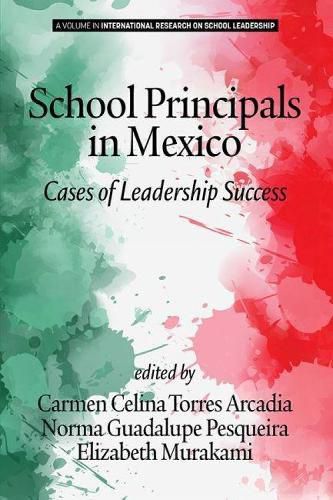Readings Newsletter
Become a Readings Member to make your shopping experience even easier.
Sign in or sign up for free!
You’re not far away from qualifying for FREE standard shipping within Australia
You’ve qualified for FREE standard shipping within Australia
The cart is loading…






This title is printed to order. This book may have been self-published. If so, we cannot guarantee the quality of the content. In the main most books will have gone through the editing process however some may not. We therefore suggest that you be aware of this before ordering this book. If in doubt check either the author or publisher’s details as we are unable to accept any returns unless they are faulty. Please contact us if you have any questions.
This volume demonstrates how principals influence success in 14 elementary schools across Mexico. The cases show the importance of learning in an international school leadership context to address cultural, social, and academic needs of students in their families. Characteristics of successful principals are included, in order to exemplify contemporary practices, generate positive school climate, and the best possible development of children in diverse contexts.
The cases presented in this book relate to challenging and vulnerable contexts or high-needs schools. Knowledge about successful school leadership in vulnerable contexts has been highly pursued in the U.S. and abroad, especially in countries where educational disparities relate to equity and social justice. The value of school principals merit visibility with a focus on the Americas.
Especially in challenging contexts, school leadership is considered a determining factor in promoting the development of children. Nonetheless, there is much to learn about contemporary school leaders, who succeed in improving schools despite societal challenges. Challenges may include increasing socioeconomic restraints, high accountability demands, and reduced resources for public education. Of note, is that a formal preparation and assignment of principals is not equitably established in Mexico, generating a high need for leaders to be prepared for this important role. By highlighting best leadership practices, practitioners and scholars can reflect about United States and Mexico educational comparisons, and observe school improvement geared towards benefitting Latinx communities in both countries.
$9.00 standard shipping within Australia
FREE standard shipping within Australia for orders over $100.00
Express & International shipping calculated at checkout
This title is printed to order. This book may have been self-published. If so, we cannot guarantee the quality of the content. In the main most books will have gone through the editing process however some may not. We therefore suggest that you be aware of this before ordering this book. If in doubt check either the author or publisher’s details as we are unable to accept any returns unless they are faulty. Please contact us if you have any questions.
This volume demonstrates how principals influence success in 14 elementary schools across Mexico. The cases show the importance of learning in an international school leadership context to address cultural, social, and academic needs of students in their families. Characteristics of successful principals are included, in order to exemplify contemporary practices, generate positive school climate, and the best possible development of children in diverse contexts.
The cases presented in this book relate to challenging and vulnerable contexts or high-needs schools. Knowledge about successful school leadership in vulnerable contexts has been highly pursued in the U.S. and abroad, especially in countries where educational disparities relate to equity and social justice. The value of school principals merit visibility with a focus on the Americas.
Especially in challenging contexts, school leadership is considered a determining factor in promoting the development of children. Nonetheless, there is much to learn about contemporary school leaders, who succeed in improving schools despite societal challenges. Challenges may include increasing socioeconomic restraints, high accountability demands, and reduced resources for public education. Of note, is that a formal preparation and assignment of principals is not equitably established in Mexico, generating a high need for leaders to be prepared for this important role. By highlighting best leadership practices, practitioners and scholars can reflect about United States and Mexico educational comparisons, and observe school improvement geared towards benefitting Latinx communities in both countries.